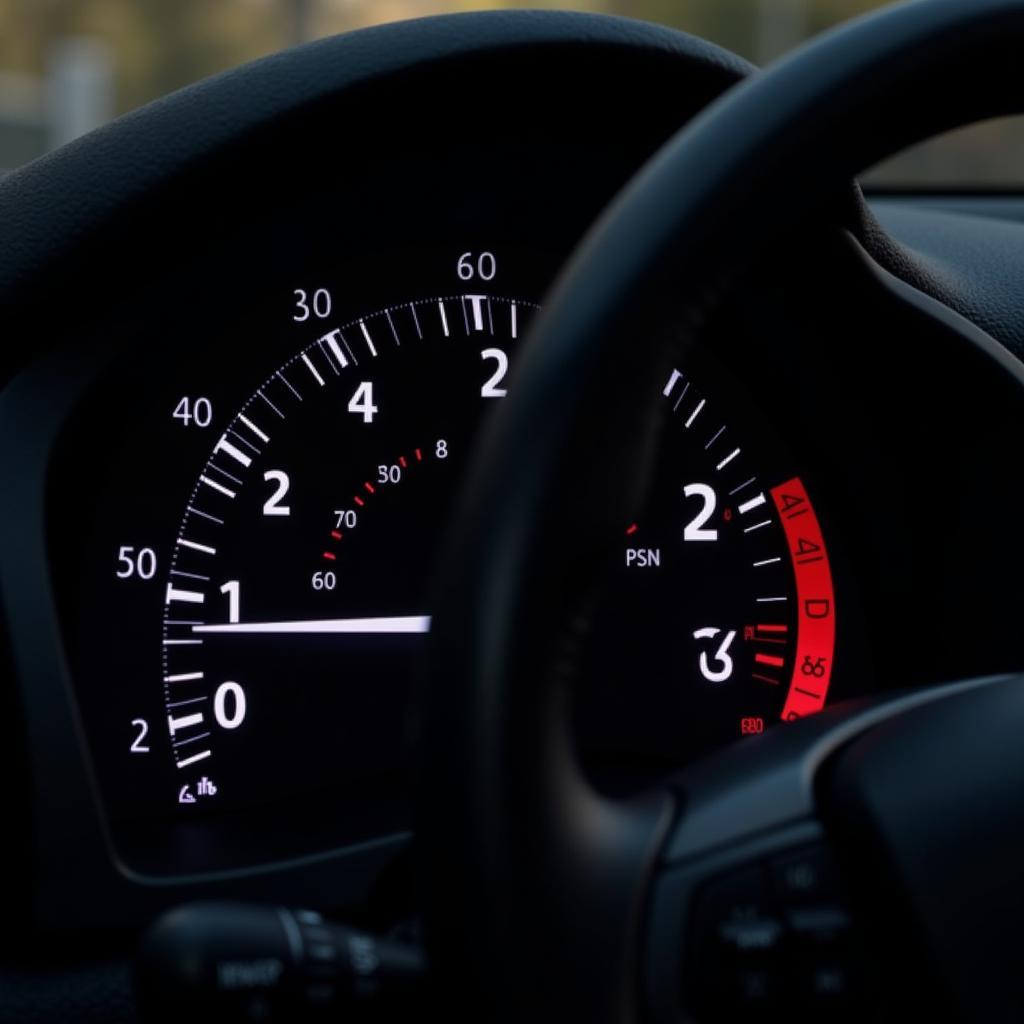Imagine this: you’re cruising down the road, enjoying a smooth ride, when suddenly, your car starts acting up. The engine sputters, the transmission hesitates, or maybe your brakes feel a bit off. But here’s the kicker – your check engine light is nowhere to be seen. It’s enough to make any driver scratch their head in confusion. The truth is, a car diagnostic problem doesn’t always trigger that infamous warning light, and understanding why is crucial for every car owner.
 Car Diagnostic Without Check Engine Light
Car Diagnostic Without Check Engine Light
Why No Check Engine Light? Unraveling the Mystery
The check engine light, while helpful, isn’t an all-knowing oracle of your car’s health. It primarily focuses on the engine and emissions systems. This means problems related to other areas like brakes, suspension, or even some electrical gremlins can lurk in the shadows, undetected by the check engine light.
Think of it this way: your car is like a complex machine with various systems working in harmony. The check engine light is just one sensor among many, alerting you to specific issues. However, just because that one sensor isn’t triggered doesn’t mean everything else is running smoothly.
Common Car Problems That Don’t Trigger the Check Engine Light
Here are a few usual suspects that often fly under the check engine light’s radar:
- Worn-out Brake Pads: Screeching sounds when braking are a telltale sign, indicating it’s time for a replacement.
- Failing Alternator: Dimming headlights, flickering dashboard lights, or difficulty starting the car might point towards an alternator on its last legs.
- Faulty Spark Plugs: Engine misfires, rough idling, or decreased fuel efficiency can be symptoms of worn-out spark plugs.
- Transmission Issues: Slipping gears, rough shifting, or a delayed response when shifting gears are red flags for potential transmission problems.
“Many drivers mistakenly believe that no check engine light means their car is perfectly fine,” says automotive expert John Miller, a veteran mechanic with over 20 years of experience. “The truth is, regular maintenance and being attuned to your car’s behavior are just as important as relying on warning lights.”
What to Do When Your Car Acts Up (and the Check Engine Light is MIA)
Don’t panic! Here’s a step-by-step guide to help you navigate the situation:
- Stay Calm and Assess: The moment you notice something off, stay calm and try to identify the problem. Is it a strange noise, a weird smell, or a change in your car’s performance?
- Check Your Dashboard: Even though the check engine light might be off, other warning lights could provide clues. Look out for lights related to ABS, tire pressure, battery, or oil pressure.
- Consult Your Owner’s Manual: Your car’s owner’s manual is your best friend in these situations. It can offer insights into specific warning lights and troubleshooting tips.
- Don’t Ignore the Problem: Even if the issue seems minor, address it sooner rather than later. Ignoring it could lead to more significant and costly repairs down the road.
- Schedule a Professional Car Diagnostic: If you’re unsure about the problem or can’t diagnose it yourself, it’s best to seek professional help.
car diagnostic machine for sale in johannesburg
The Power of Proactive Car Diagnostics
Regular car diagnostics, even without a glaring check engine light, can save you time, money, and potential headaches in the long run. Think of it as a health checkup for your car, ensuring everything is in tip-top shape.
“Proactive diagnostics allow us to detect and address minor issues before they escalate into major problems,” explains Miller. “It’s always better to be safe than sorry, and regular checkups are a small investment for your car’s long-term health.”
Conclusion
While the check engine light is a valuable warning system, it shouldn’t be your only gauge for your car’s health. By understanding that problems can arise even without the light, staying vigilant about your car’s behavior, and embracing proactive diagnostics, you can ensure a smoother, safer, and more enjoyable driving experience. Remember, a little car care goes a long way!
FAQs
1. Can I drive my car if I suspect a problem but the check engine light isn’t on?
It’s best to err on the side of caution. While driving short distances to a mechanic might be okay for minor issues, continuing to drive with a potential problem could worsen the situation.
2. How often should I get a car diagnostic, even without the check engine light?
It’s generally recommended to have a professional car diagnostic at least once a year or as part of your regular maintenance schedule.
3. Are car diagnostic tools available for home use?
Yes, various portable car diagnostic tools are available for purchase. However, keep in mind that these tools might not be as comprehensive as those used by professionals.
car diagnostic machine for sale in gauteng
4. Can extreme temperatures affect my car’s performance even without triggering the check engine light?
Absolutely! Extreme heat or cold can impact your car’s battery, fluids, and overall performance.
5. Can a loose gas cap cause problems without triggering the check engine light?
While a loose gas cap usually triggers the check engine light, it might not always be the case. It’s always a good idea to double-check your gas cap if you notice a fuel smell or decreased fuel efficiency.
For further information on car diagnostics and to explore a range of high-quality diagnostic tools, visit DiagFixPro today. We’re your trusted source for all things car diagnostics!
car diagnostic machine for sale in kenya
Need Assistance?
Contact us via WhatsApp: +1(641)206-8880, or Email: [email protected]. Our dedicated customer support team is available 24/7 to assist you with any queries or concerns.

Leave a Reply